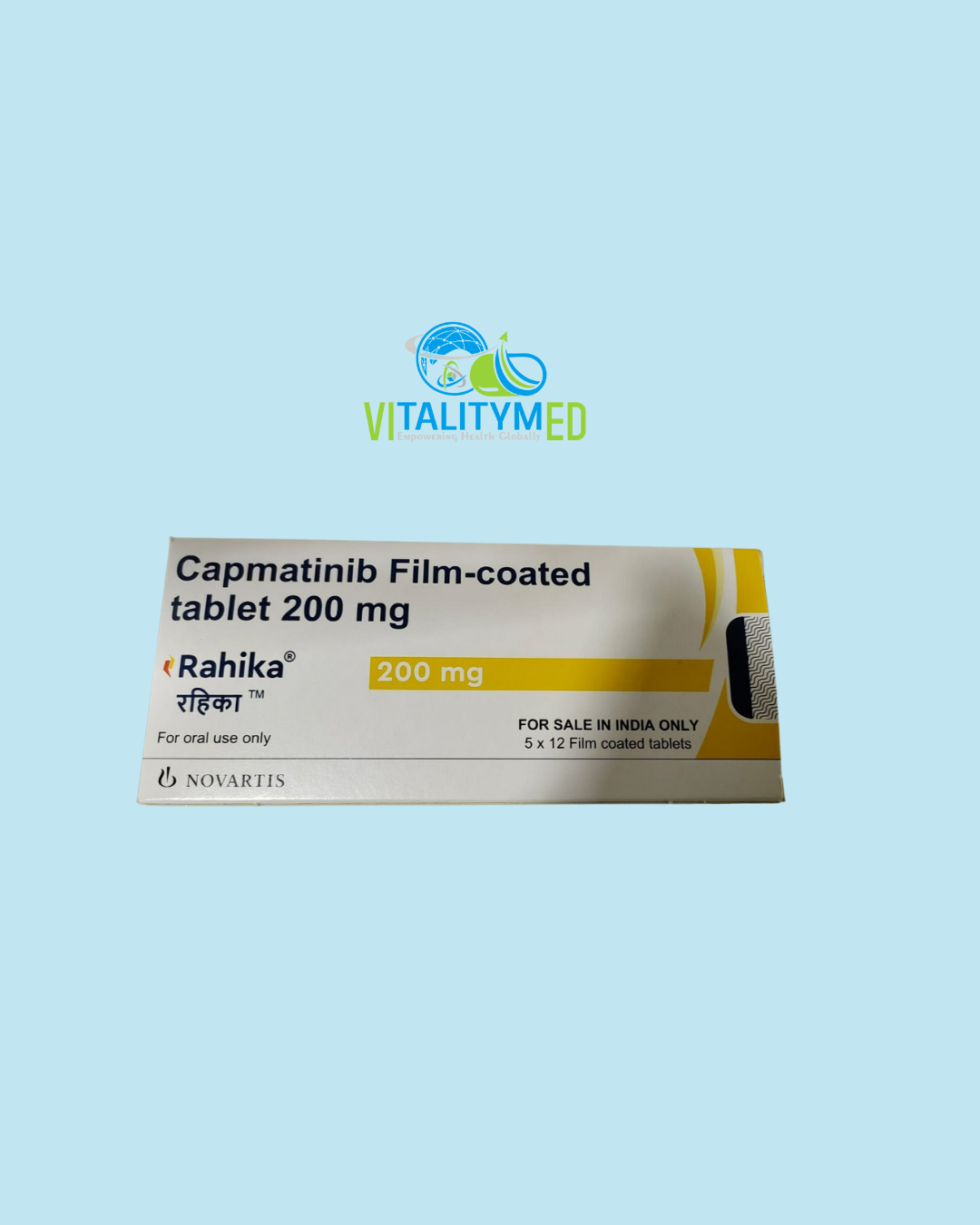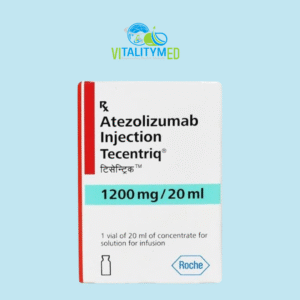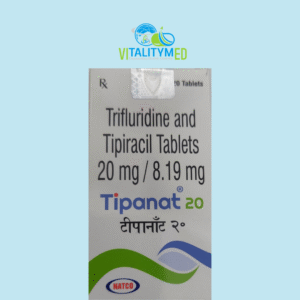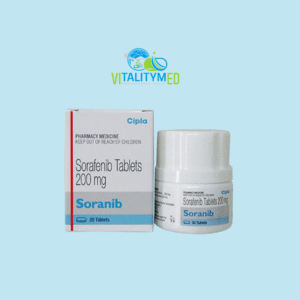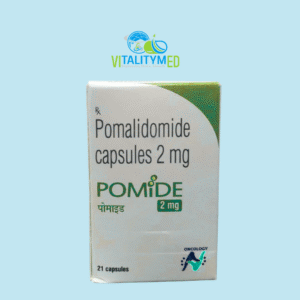Rahika 200 mg contains capmatinib, an oral targeted therapy that belongs to a class of drugs known as MET inhibitors.
It is a modern, precision-medicine approach designed specifically for certain patients with non-small cell lung cancer (NSCLC) who have alterations in the MET gene, a genetic driver that promotes cancer growth.
Unlike traditional chemotherapy, capmatinib targets a specific molecular abnormality inside cancer cells, allowing it to slow or stop tumor growth with generally fewer effects on normal, healthy cells. Taken as a tablet, it provides patients with a convenient at-home treatment option, under close medical supervision.
Mechanism of Action
Capmatinib works by selectively targeting and inhibiting the activity of the MET (mesenchymal-epithelial transition) receptor tyrosine kinase, which is often abnormally activated in certain cancers.
Why MET matters
-
In normal cells, the MET receptor helps regulate cell growth, survival, and repair.
-
In some cancers, especially lung cancer, genetic alterations such as MET exon 14 skipping mutations or MET amplifications lead to constant activation of this pathway, causing uncontrolled cell division and tumor spread.
How capmatinib works
-
Capmatinib binds to and blocks the MET receptor, shutting down the signals that drive cancer cell growth, invasion, and metastasis.
-
By interrupting these faulty signals, it effectively slows or stops the progression of tumors that are dependent on MET alterations.
This makes capmatinib a highly targeted therapy, designed to work best in tumors that are genetically tested and shown to have specific MET abnormalities.
Uses
Rahika (capmatinib) is primarily indicated for the treatment of:
Non-small cell lung cancer (NSCLC)
-
Specifically in patients whose tumors have a MET exon 14 skipping mutation, as confirmed by a validated genetic test.
-
It may be used both in newly diagnosed patients or in those who have previously received other treatments.
Because MET mutations are relatively uncommon (found in about 3-4% of lung adenocarcinomas), capmatinib is a precision medicine — offered only to those whose tumors are tested and proven to have these specific genetic changes.
Side Effects
While capmatinib is generally better tolerated than traditional chemotherapy because of its targeted action, it still has side effects that require careful monitoring and management.
Common side effects
-
Swelling (edema), particularly of the hands, feet, or legs.
-
Nausea and vomiting, which can usually be managed with supportive medications.
-
Fatigue or weakness.
-
Loss of appetite.
Laboratory abnormalities
-
Elevated liver enzymes (ALT and AST) are common, so liver function is regularly monitored through blood tests.
-
Low levels of albumin (a protein in the blood).
Less common but important
-
Interstitial lung disease (ILD) / pneumonitis: causing new or worsening cough, shortness of breath, or fever. This is rare but potentially serious and needs immediate medical attention.
-
Photosensitivity: the skin may become more sensitive to sunlight, so sun protection is advised.

